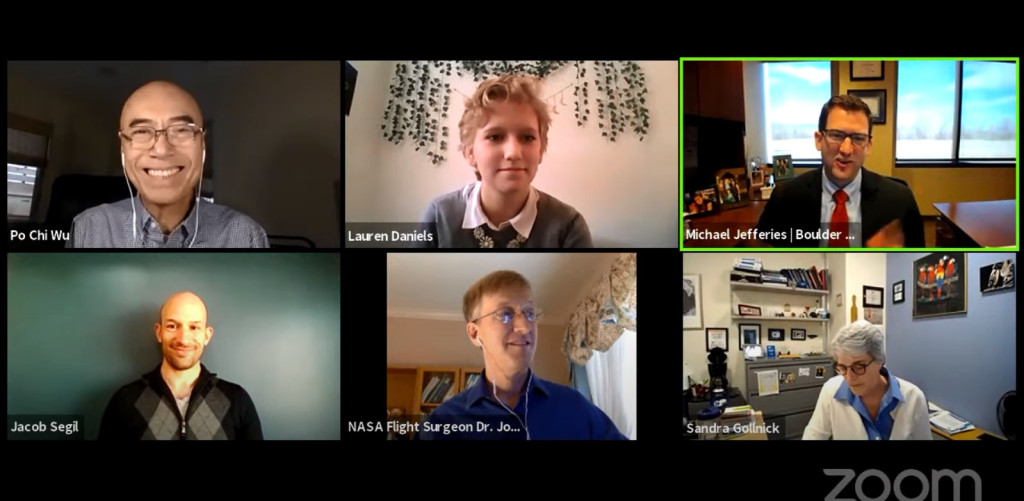A panel of doctors, researchers and medical experts discussed the intersection of health care, technology and trust Wednesday at University of Colorado Boulder’s Conference on World Affairs.
While technology is allowing for remarkable advancements in health care and medicine, the panelists all spoke of issues that are woven into progress in telehealth, robotic surgery and prosthetics.
Trust in technology, medical providers and the health care system is sorely needed to keep moving forward.
Like so many health care organizations, Boulder Community Health saw skyrocketing telehealth services during the pandemic, said Chief Information Officer Michael Jefferies.
But the overall volume of appointments was down, which means that there were people not receiving needed medical care.
“What we’ve seen is that some people are not willing or quick to adopt telehealth, which means their health would have declined over the past year,” Jefferies said. “I think we need to be really cognizant that while we create these new bridges to connect with patients, we’re not burning down old ones.”
There could be a number of reasons people don’t trust medical professionals, said Sandra Gollnick, professor of tumor immunology at the Roswell Park Comprehensive Cancer Center in New York, not the least of which is that many people spend more time in waiting rooms than they do talking to their doctor.
“They start out not trusting and now you want them to talk to a phone or a box, and that’s assuming they have a smart phone and broadband access,” Gollnick said. “These are big things to overcome and that’s been particularly evident during this time of Covid … Trust is vital for our patients. They have to trust us, and that requires patience.”
There’s also a tug of war between trying to lower health care costs while simultaneously driving them up with new technologies, Jefferies said.
“In many cases these technologies do improve the quality of health care, but in many cases they also reduce access,” he said.
For example, there are advanced prosthetics that can be used by people with upper limb amputations, but most of them are using devices designed just after World War II.
“I imagine many of them are doing that because they don’t have access or coverage to get additional care or an additional tool,” he said. “I think we can’t have this conversation in the absence of the sea in which we swim, which is the payment environment.”
Po Chi Wu, visiting professor at the University of California Berkeley and adjunct professor at the Hong Kong University of Science & Technology, said health care’s systemic problems, rooted in both social and political issues, go back to trust.
“If we had a system that was based more on trust, the system would work a lot better,” he said. “For the young people listening, I’d encourage you that whatever you choose to do in your career and involvement in society, learn how to ask questions about how fundamental systems can work better, whether it’s hospitals or technology. There are some serious, fundamental rethinking of processes that needs to take place.”
CWA panels continue throughout the week, wrapping up on Sunday, and are being livestreamed through the CWA at CU Boulder Youtube. For more information, visit colorado.edu/cwa.












![[SENIOR MOMENTS] Embracing the Tools of Technology](https://newsfortomorrow.com/wp-content/uploads/2020/10/BUG-4_NOV-2020-225x125.jpg)



